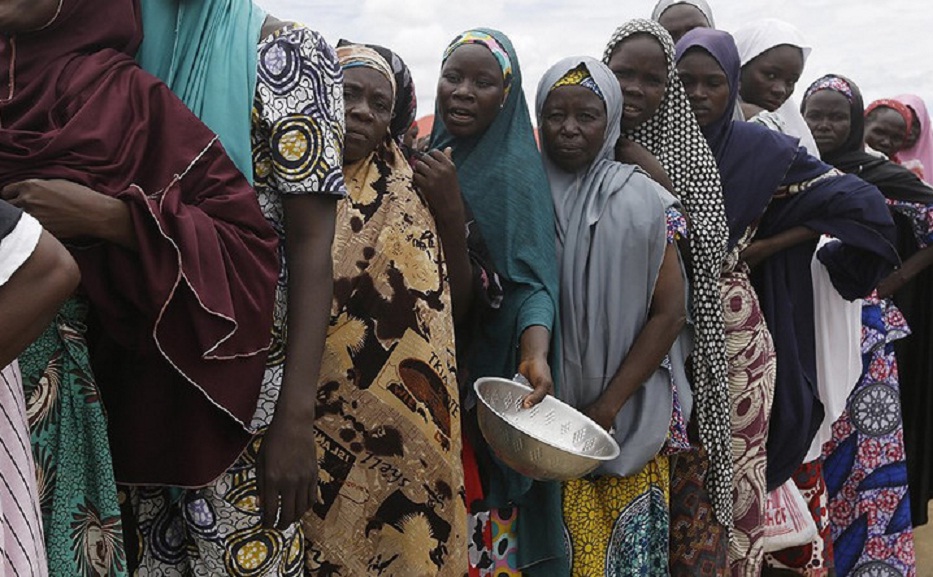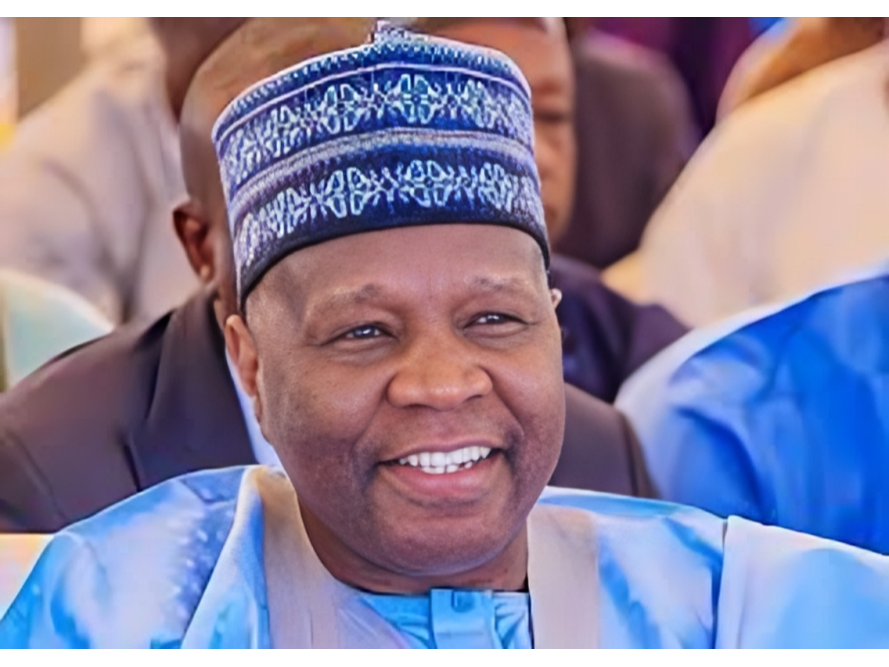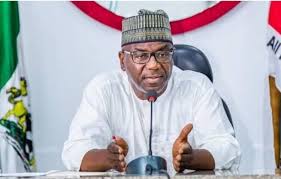Uncategorized
Help! There’s Hunger in the Land

By Samson Bright
Food insecurity which the United States Department of Agriculture (USDA) defined as a situation of “limited or uncertain availability of nutritionally adequate and safe food or limited or uncertain ability to acquire acceptable foods in socially acceptable ways,” is an aggrandizing socioeconomic emergency capable of plunging Nigeria into an abysmal ruckus if left unabated.
There’s low supply of food in the land unaffordable for the commoners.
The Federal Ministry of Agriculture and Rural Development has its headquarter at Abuja, and offices in 35 States of Nigeria except Lagos, each of the 36 States has Ministry of Agriculture; in spite of the plethora of government establishments saddled with the responsibilities of ensuring: cornucopia of affordable food, protection of different spheres of the nation’s agricultural sector, development of agrarian communities, increasing farm outputs year-over-year, and bringing the agricultural sector in congruence with global best practices; Nigeria was ranked 2nd poorest in food affordability globally by the Institute of Development Studies, United Kingdom.
According to ‘Trading Economics,’ an independent economy forecasting consortium, food inflation in Nigeria averaged 12.07% from 1996 until 2021, reaching an all-time high of 39.54% in September 2001, and record low of -17.50% in January 2000. In 2021, it rose to 22.95% in March and declined to 17.76% in June.
Strongly correlating with ascending malnourishment, food insecurity makes living hellish for the underprivileged.
A report by the Nigerian Bureau of Statistics (NBS) detailing poverty and inequality from September, 2018 to October, 2020, disclosed that 40% of the populace or 82 million Nigerians live below the international poverty line of $1.90 daily, whilst another 25% or 53 million people are vulnerable.
Malnutrition is a long time problem coinciding with food scarcity and declining food quality in the country. The socioeconomic knot piqued by high poverty rate keeps gaining momentum over the years taking huge toll on the health of
According to bulletins from United Nations Children’s Funds (UNICEF), Nigeria has the second highest burden of stunted children in the world and an estimated 2 million children suffer from acute malnutrition. Just 18% of toddlers aged 6-23 months are fed the minimum acceptable diet and over 1000 children die from acute malnutrition daily nationwide.
Nigeria has 70.8 million hectares agricultural lands but only 34 million hectares are arable—lands currently in use for agriculture. Vast potential lands for farming are uncultivated while the populace languishes in starvation and penury.
Unambiguously Nigeria is the most populous country in Africa with over 201 million people. Agriculture sector provides employment for 35% of the population while 70% of households engage in crop farming; even so, farm output is too low to feed the masses, compared to country like Canada whose employees in the agriculture industry is just 0.79% of her population yet one of the largest food producer and exporter in the world. Food produced by dint of superannuated system of farming is insufficient for rising demands as Nigeria’s large population is growing at a rate of 6.2 million annually.As many as 811 million people worldwide go to bed hungry each night without intending to fast and large percentage of them are resident in sub-Saharan Africa. They have no access to food or can’t afford it.
Conflict is equally another weighty cause of food insecurity, precisely in war-torn societies. The incessant bandits and herdsmen incursions have left millions of farmers displaced and discouraged ample prospective agriculturists. The federal government should device a workable system for both farmers and herders to thrive as well as beef up security around agrarian communities.
Climate change is undoubtedly a global anathema to agriculture whose antecedents are not far-fetched in the country, especially in the North. Notwithstanding, the impacts can be mitigated through cutting down carbon emission plus swift upgrading of Nigerian Meteorological Agency (NIMET) to an advanced rainfall onset, pattern and retreat prognosticating bureau concurrent with bridging communication gap between farmers and NIMET.Government’s annual budget for agriculture is insufficient; sad to say, bulk of it is still mismanaged or unaccounted for. As revealed by Chatham House, over $582 billion has been siphoned from government coffer since independence and largesse allocated to agriculture is integral victim of this embezzlement; consequently deteriorating the nation’s food upheaval. To expunge the looting hinge on efficacy of national anti-corruption watchdogs.
Nigeria is currently overpopulated owing to poor productivity. The nation is economically stretched above its carrying-capacity; ergo, can’t sustainably feed her fast growing population. Food is essential to human’s existence, physical and psychological wellbeing.
The healthiness and productivity of a nation are largely dependent on the quality and quantity of foods consumed by the people. It is the duty of a responsible government to enact, finance and monitor well-conditioned policies aimed at providing basic rights and necessities such as food for the citizenry.The surging food insecurity calls for national emergency to assuage hunger in the land. If left unabated commoners may resolve to self-help, contravening extant Laws in their course of actions.
It’s evidently a threat to our national security. There’s fire already on the mountain. Constituted authorities should act promptly. A stitch in time saves nine.
NEWS
Ododo Clears N98.8 Billion Debt, Tasks Officials On Grassroots Engagement, Local Patronage

From Joseph Amedu, Lokoja
Governor Ahmed Usman Ododo has charged government officials to remain close to the grassroots and ensure constant engagement with the people, noting that such connection is key to responsive governance. Ododo gave the charge during the State Executive Council Meeting held in Lokoja on Monday.
“We are in government to serve the people, and that means staying connected to their needs and aspirations,” the Governor said. As part of efforts to boost the local economy, the Governor also directed all government officials to wear Made-in-Kogi fabrics as a show of support for indigenous industries. He encouraged Kogites to take pride in local products and lead a cultural and economic renaissance from within. Also Briefing journalists after the meeting, the Commissioner for Information and Communications, Hon. Kingsley Femi Fanwo, said the administration is committed to making governance more visible and impactful. “Governor Ododo is driving a government that listens, learns, and leads from the grassroots. His directive on Made-in-Kogi fabrics is a strategic move to grow our economy and export our identity,” Fanwo said. On infrastructure, Fanwo disclosed that perimeter fencing at the Confluence University of Science and Technology (CUSTECH), Osara is 90% completed, while both male and female hostels have been completed and are already housing students. Similar projects at the Kogi State University, Kabba, are progressing satisfactorily. To improve public safety, the Council also approved a bill to restrict the movement of heavy trucks during peak hours. Another bill was approved for the establishment of the Kogi State Agency for Climate Change as part of a forward-thinking response to global environmental challenges. In a separate briefing, the Commissioner for Finance, Budget and Economic Planning, Mukadam Asiwaju Asiru Idris, announced that the Ododo administration has fully liquidated N98.8 billion in debts inherited from previous administrations within just 15 months. The breakdown includes,N8 billion in bonds from the Idris Wada administration,N50.8 billion salary bailout from the last administration,N10 billion ECA-backed infrastructure loan,N15 billion infrastructure loans from Zenith Bank and another N15 billion from UBA Plc.“This is a landmark achievement. His Excellency Governor Ododo has demonstrated fiscal discipline and commitment to economic recovery. Within 15 months, we have cleared N98.8 billion in inherited debt,” Idris said.He added that Fitch Ratings has upgraded Kogi State’s credit rating from ‘B-’ to ‘B’, with a stable outlook, citing prudent financial management. As of September 30, 2024, the state’s debt profile stands at N40.5 billion, placing it on a strong path to debt sustainability.Uncategorized
France to Partially Ban Smoking in Public Areas to Protect Children

France is to ban smoking in public outdoor spaces, including beaches, parks, school zones, bus stops and sports facilities starting July 1 as part of a nationwide effort to protect children.
Health Minister Catherine Vautrin said where there are children, tobacco must disappear.
She added that plans to lower the nicotine content in vaping products and reduce the number of flavours available.
“Anyone who violates the new smoking ban will have to pay a fine of 135 euros (153 U.
S. dollars).“The regulation is to be monitored by the municipal police.
“My goal is both simple and deeply ambitious: to ensure that children born in 2025 become the first smoke-free generation,” the minister said.
The new nationwide smoking restrictions, many of which were already in place at the local level, are designed to support that vision, she said.
However, outdoor seating at cafés and the use of e-cigarettes is exempted from the ban, but young people should no longer smoke outside schools.
The minister said that the size of the area around schools where smoking would no longer be permitted in future was still being determined.
The regulation should also prevent pupils from going outside the building to smoke.
In 2023, 15.6 per cent of 17-year-olds said they smoked, compared to twice as many 10 years earlier.
Smoking remains the leading preventable cause of death in France, responsible for 75,000 deaths annually or more than 200 per day, the health minister added.
Vautrin noted that it has been proven that prevention reduces the risk.
She also noted the economic toll, with cancer costing the country 150 billion euros per year.
Vautrin emphasised that the right to smoke is not being abolished.
“People are free to smoke at home or in designated areas. But that freedom ends where a child’s right to clean air begins.” (dpa/NAN)
Uncategorized
Tinubu Repositioning Nigeria for Sustainable Growth – Gov. Yahaya

Gov. Yahaya of Gombe State has lauded President Bola Tinubu for the implementation of viable social and economic reforms geared towards repositioning Nigeria for sustainable development.
The governor felicitated with the President and his deputy, Vice President Kashim Shettima on the occasion of their second anniversary in office.
Yahaya, in a goodwill message by his media aide, Mr Ismaila Uba-Misilli, said Tinubu’s bold reforms would reposition Nigeria on the path of sustainable growth.
He described Tinubu’s two years in office as those of courage, bold reforms, and purposeful governance under its Renewed Hope Agenda.
“President Tinubu has taken decisive steps to reposition Nigeria on the path of sustainable growth,” he said.
Yahaya said that Tinubu had initiated viable infrastructure development projects such as the Lagos – Calabar Coastal Highway and the Sokoto-Badagry Road, as landmark efforts to bridge developmental gaps and stimulate the economy.
According to Yahaya, these projects, along with other strategic interventions in energy, agriculture, transportation, and the digital economy, are gradually laying the foundation for a more prosperous and resilient Nigeria.
He acknowledged Tinubu administration’s renewed drive to tackle security challenges, describing the intensified campaign against insurgency, banditry and criminality as “commendable.”
Yahaya, who is also the Chairman, Northern Governors’ Forum (NGF), also applauded the president’s inclusive and consultative leadership style, fostering national unity and renewed confidence in governance.
“The Northern region is already feeling the ripple effects of Tinubu’s policies through the improved Federal Government collaborations, increased access to social investments, and targeted empowerment programmes for youths, women and vulnerable groups.”
He further prayed for continued divine guidance, good health and greater wisdom for Tinubu as he steers the nation toward peace, equity and development. (NAN)






























